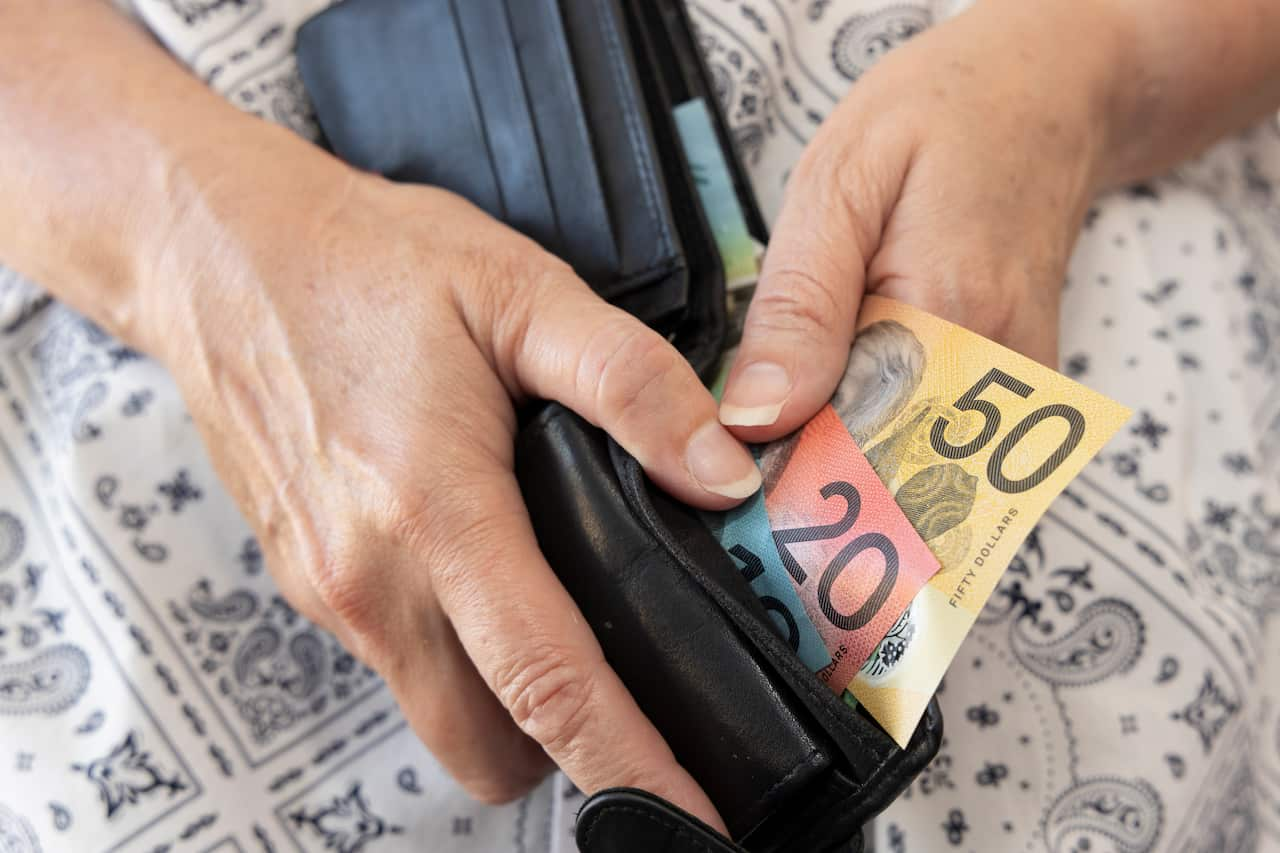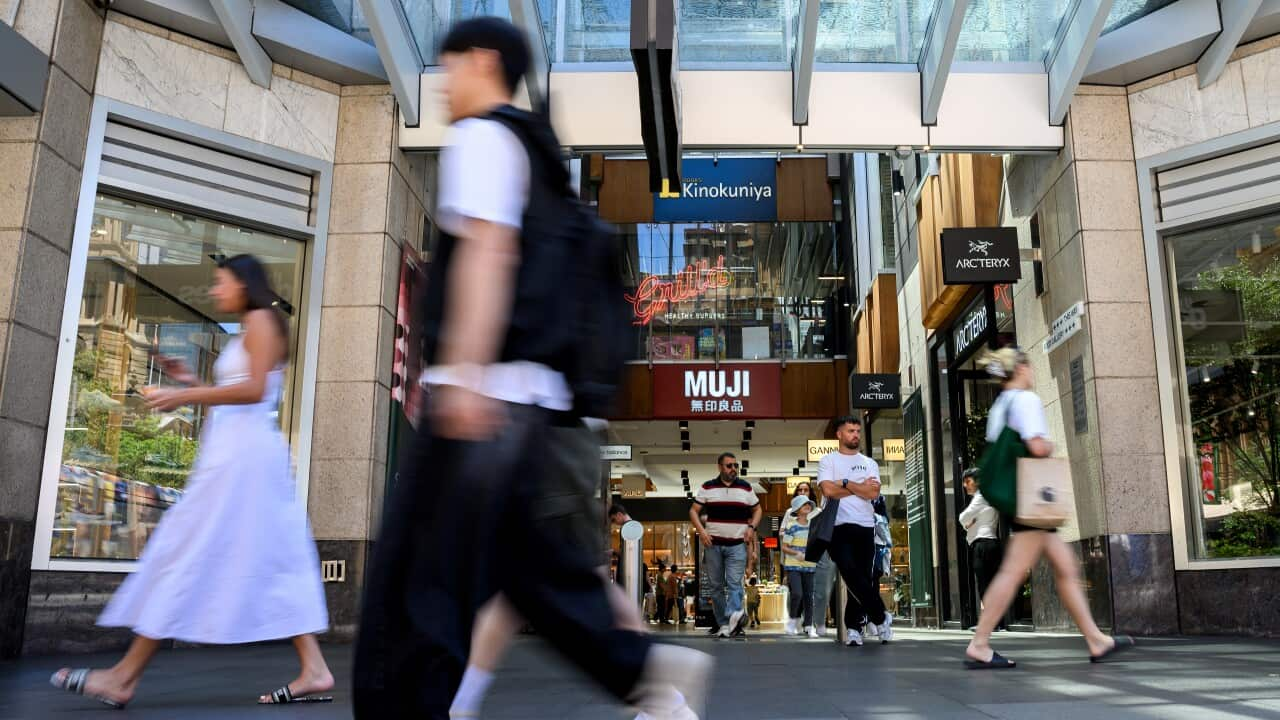There are signs the cost of living crisis affecting Australians during years of high inflation could be easing, analysts say, but some charity groups warn rising wealth inequality mean the pain is not lessening for everyone.
Deputy director of the Anglicare charity Maiy Azize told SBS News: "It's really frustrating" for people to hear speculation on whether the cost of living crisis is over, because millions of Australians are still struggling to afford essentials.
"We've had years of big price increases for things like food, things like fuel. Electricity has never been more expensive. Energy debts are really high, and of course rents have never been higher," she said.
Anglicare has not seen any measurable drop off in people requiring its charity services, she said.
"We're definitely not seeing any kind of slow down in the number of people who are coming to us for things like emergency relief, for things like bill assistance, financial counselling, that's certainly not improving, she said."
"I think when people hear things like, 'oh, the cost of living is getting better', they might think that actual relief is in sight and things might be getting a bit cheaper. But in reality things aren't getting cheaper for them. They don't need our help any less."
Household spending ticks up
Investment research company Morningstar published a report this month telling retail investors the cost of living crisis would become a "thing of the past", as people start to spend more on non-essential items.
Commonwealth Bank analysis shows household spending rose for a third consecutive month in June, up 0.3 per cent following gains of 0.4 per cent in April and May.
"Household spending is starting to show signs of consistency month-on-month and should continue to pick up this year as consumers begin to loosen their purse strings," the bank's senior economist Belinda Allen said in a statement earlier this month.
"This recovery is taking longer than expected to occur, but there are green shoots emerging."
After its July meeting, the Reserve Bank of Australia (RBA) disappointed mortgage-holders and shocked market economists by opting to hold the cash rate at 3.85 per cent in a split decision.
Many had expected the bank to lower the cash rate in line with inflation — the Consumer Price Index figure for May came in at 2.1 per cent, down from 2.4 per cent in April.

The annual trimmed mean inflation — which doesn't include major price swings and is the RBA’s preferred measure — was at 2.4 per cent, down from 2.8 per cent in April.
Morningstar chief investment officer for the Asia Pacific, Matt Wacher, said falling inflation means Australians could be feeling more confident about spending money.
"In real terms, adjusted for inflation, household incomes are actually growing again in real terms, which they weren't for quite a period there," he said.
"That kind of makes people feel that there's a bit more money in their hip pocket when they're actually earning more than the inflation rate again."
Wacher said that the savings rate — the percentage of their income Australian households are able to save — has rebounded since a low of about 1.5 per cent in September 2023.
In the March quarter it rose to 5.2 per cent, according to the Australian Bureau of Statistics.
Reasons for optimism, or a crisis still 'far from over'?
Further argument for optimism in the economy is the fact the RBA is likely to lower the official cash rate even further, Wacher said.
"The market is still pricing in four rate cuts over the next 12 months, and that would certainly have a very large effect if that was to come through on consumer balance sheets," he said.
But Australians aren't necessarily going to feel like they are out of the woods, the Australia Institute's senior economist, Matt Grudnoff, said.
"People are likely to still be feeling the pinch," he said.
"When people talk about inflation easing, they don't mean that prices are going backwards, they just mean that they're not increasing as fast as they once were."
Grudnoff said Australians with mortgages haven't changed their behaviour significantly since the RBA started introducing rate cuts.
"Around 80 per cent of people haven't adjusted their repayments [since the cute were introduced]," he said. "So effectively, rather than taking the extra money, people are just paying down debt faster, which suggests that they're not increasing their spending in response to this cutting interest rates, which tells me that they're still quite worried and uncertain about the future."

When people are uncertain and worried about the economy, "their first reaction is to kind of pay down debt and get ahead in order to build a buffer against any future kind of shock," he said.
Grudnoff said a rise in the unemployment rate announced on Thursday — from 4.1 per cent to 4.3 per cent since last month — could be one of several factors contributing to consumer uncertainty.
"If unemployment is going up, people might be worried about their jobs. The economy's growth is almost flat so they're worried about their jobs and if they're uncertain and worried, they're not going to be rushing out and spending on discretionary items."
Australian Council Of Social Service CEO Cassandra Goldie said the cost of living crisis is "far from over".
"There are persistent cost pressures that are placing people on low incomes under enormous financial stress," she said.
"Housing affordability has continued to deteriorate, while rental stress has become more persistent and is damaging people’s health."
For the latest from SBS News, download our app and subscribe to our newsletter.

